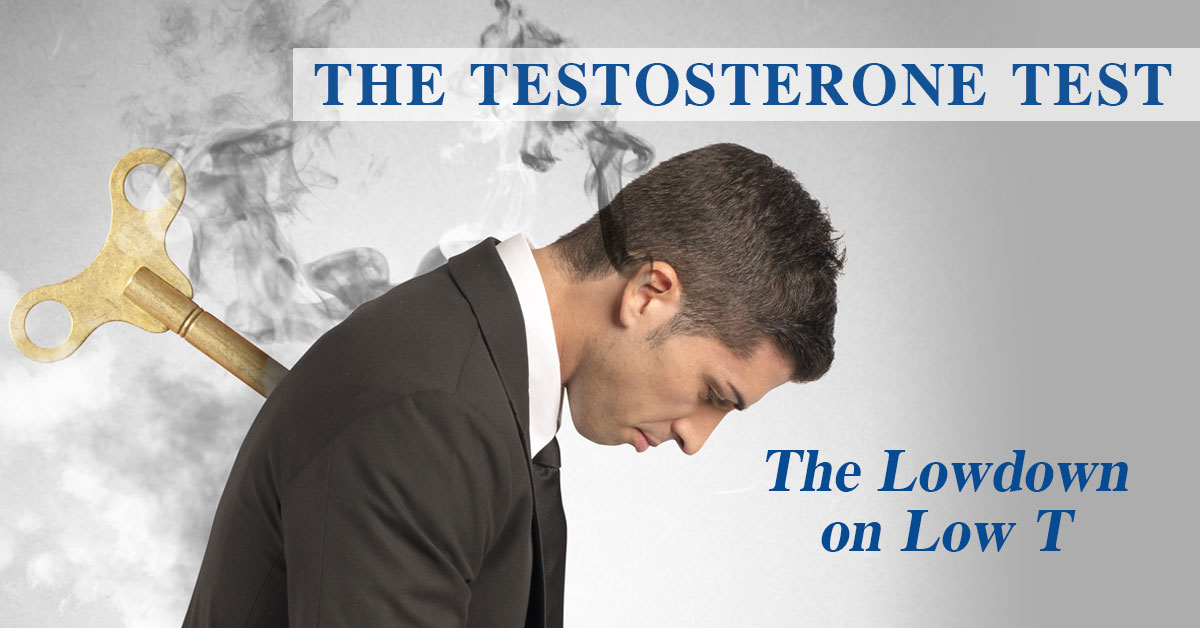THE TESTOSTERONE TEST – Low Libido: What Do You Really Know About it?
Let’s take a quick little quiz:
- Does anyone really know what libido is?
- Do only men have libido?
- Are libido and ego related?
- Where did libido come from?
- Is your libido MIA?
Answers:
- Scientists and physicians and such know what “libido” really is
- Women, in fact, do have libidos and they don’t come from watching “The Real Housewives of New Jersey”. (see “lust” on Google”)
- According to Freud, yes, although when you put them together, narcissism figures in (go figure)
- Early 20th century: from Latin, literally ‘desire’, ‘lust
- If you’ve lost interest in sex, it’s definitely worth questioning
That said, let’s start this libido lesson with our old pal Freud. According to him and his other pals, “Libido is an expression taken from the theory of the emotions. We call by that name the energy, regarded as a quantitative magnitude (though not at present actually measurable), of those instincts which have to do with all that may be comprised under the word ‘love”‘.
Sex. It’s Starting to Get Good Here
In real life, “libido” comes down to 2 little words: SEX DRIVE. Virility plays a big role in our concept of manhood. There’s the sex appeal of everything from Victoria’s Secret Models to women wrestlers. Conquests are bandied about, well, just about everywhere. Instagram images? Instant varoomm.. You can be hypersexual and tear down your desire track, desperately seeking opportunity, driven to act on the urge, not taking a minute to stop at your neighborhood sex toy shop.
Just How Low Can Your Libido Go?
On the opposite side, you could be grounded by hyposexuality, a low libido putting your “gotta get it” in stall. You feel like you’re in a permanent no-nooky slump regardless of the allure of barely-there lingerie. A lot of factors can cause a low libido. It could be something as simple as moral or religious reasons. Psychologically, a person’s urge can be repressed or sublimated. On the other hand, a person can engage in sexual activity without an actual desire for it. Multiple factors affect human sex drive, including stress, illness and others. Problems can arise from disparity of sexual desires between partners, or poor communication between partners of sexual needs and preferences.
Caution: Porn Warning
Porn’s allure and ever-present existence isn’t exactly titillating new news. The question that still remains, however, is how this tsunami of porn is affecting the libido of the American male. Most men you ask who are married or in relationships will claim they are still attracted to their partners sexually. But the reality (or rather non-reality) of easy-access porn gives men access to younger, hotter, and more sexually adventurous women. Researcher believe that porn causes the male brain to release a dopamine-oxytocin combo—sort of like a “biochemical love potion” that fires up your neurotransmitters that not only get you off on porn, but potentially develop a biological attachment to it. Even those with hyposexuality can get off on it.
Put it to the Real Test
You might not call sexual problems as having a problem with your libido. You do know that the problems are real, and a real concern to you. They’re a real concern for men everywhere. You feel like your masculinity is in question. You feel like a sexual failure. You feel like you can’t talk to anyone about it, including your spouse. If it’s a matter of “take it or leave it” and you keep coming up with “leave it”, it’s a good chance the only thing wrong, is a hormone imbalance. And no one in the area has more experience and success in treating hormone imbalances than Stephen A. Goldstein M.D., F.A.C.S. at Denver Hormone Health. He treats the issue of sexuality seriously. Before anything, he’ll have a lot of questions to ask you. And you’ll feel like you could tell him anything. Then, with simple tests, he can target what the trouble really is, and treat it with a program exclusively for you. That simple.
So call for an appointment now.
And put your sex life in drive again.



